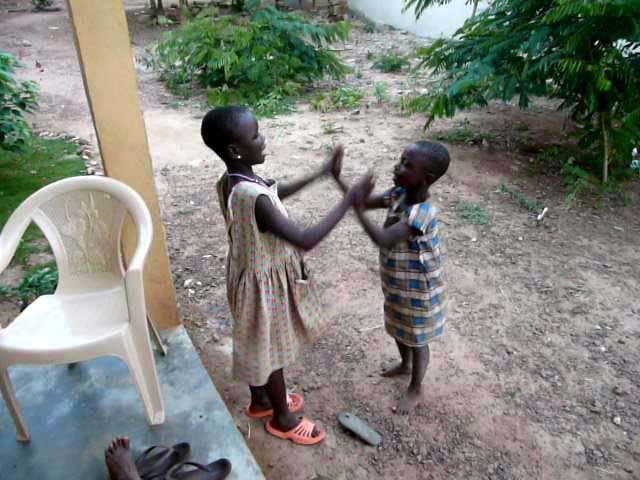Africa for Kids
Hand Clapping Games from Liberia & West Africa

Hand-clapping games are more than play — they teach rhythm, memory, coordination, and joy. In Liberia and across West Africa, children sing in local languages and Coloqwa (Liberian Pidgin English), passing down songs that have travelled generations.
Three Liberian Clapping Games
Game #1 – Performed by Rannecia & Promise
Game #2 – “Oh Mama”
Performed by Felicia, Victoria, Promise, Jackerline, Temoh, and Princess
Oh Mama, Mama!
Oh Papa, the war!
The war has make in the Burkina Faso.
I say East, the West.
I met my boyfriend in the ice cream shop.
He bought me ice cream on my wedding day.
Mama, Mama. I’m so sick.
Take me to the doctor, shall be quick quick quick.
Doctor, doctor. Will I die?
No my dear, you will live forever more.
Game #3 – “Meter Competition”
Performed by Princess & Temoh
I, I, I, I promise.
Please show me.
Television.
For example.
1 meter… 2 meter… 3 meter… (continue until someone misses!)
How to Play
- Face your partner. Hands up, palms facing.
- Clap your own hands → clap partner’s right hand → clap own hands → clap partner’s left hand → repeat faster!
- Sing the song together. Whoever messes up the rhythm starts the next round.

























